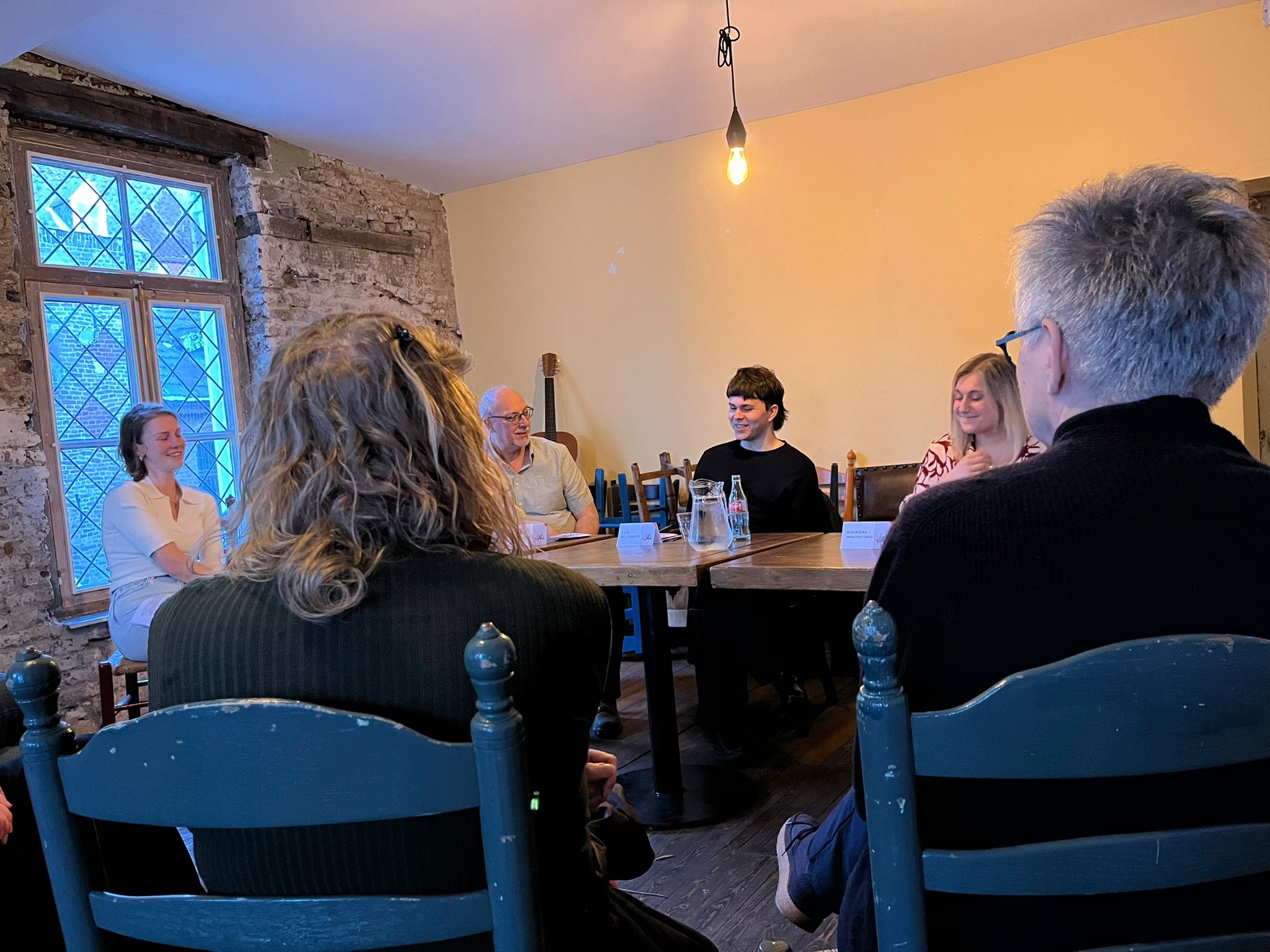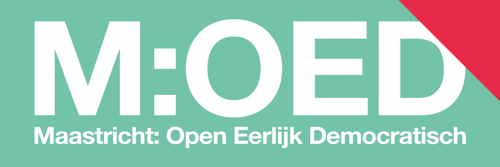Impressions from a panel discussion on mental health

By Bestuur on
Impressions from a panel discussion on mental health
By Marina van Montfort and Jim Allen
April 10 was the big day. M:OED member Joyce Grul brought together three experts to address the topic of mental health among young people in a panel discussion, each from their own perspective. Among other things, Alexandra Masciantonio studies how social media occupies a space in, or even invades, our lives, how we are engaged online as citizens, and how this affects our mental well-being. It can be a boon in terms of enabling us to reach many people quickly with limited resources, and to inform and connect them. But it can also expose young people to, for example, online influencers who do not necessarily have their best interests at heart.
Marina: “The influence of social media is a theme that often occupies my thoughts and sometimes keeps me awake at night”
And then there was Luuk Bellemakers, our second speaker. Training to be a director, he feels a strong need to give people on the margins of society a voice within the world of the theatre. In his latest project (SHY) we spend several hours looking into the life a young person trying to find his way in the big bad outside world. You climb into the skin of the boy himself, into his inner world, and also into the skin of the bystanders, the network. And what do you experience as an audience member, as a bystander, with a boy who is having a hard time, who in one moment seems likeable and understandable and the next moment displays behaviour that provokes our disgust? What does that do to your impulse to help, and how does this changing behaviour change your capacity for empathy and attentiveness?
Jim: “I was struck by the courageous way Luuk sought to expose all the beautiful but also all the painful and ugly sides of such a personal tragedy.”
The third speaker talked about an instrument called Mental Health First Aid Training that allows professionals and volunteers to have a structured conversation with young people, a conversation that goes beyond “How’s it going?”. Through his experiences with this approach Peter Beckers (working in Mondriaan’s prevention department) has become so enthusiastic that he hopes to apply this tool on a large scale. His goal is to help citizens connect with each other so that their mental health gets a (scientifically proven) nudge in the right direction. Especially in the post-covid era, Peter’s experience is that we need to give young people extra attention and protection. Indeed, several national surveys show that young people’s mental health has suffered quite a bit mentally during the covid crisis. Recovery, according to Peter, can take quite some time.
Jim: “It’s great that so much more attention is paid to this subject these days than in the past. But a lot of suffering remains. There is still much to do”.
The choice to approach this topic from these three perspectives – the researcher, the dramatist, and the practicing professional – proved to be inspired. This bridged the gap between scientific knowledge, expressive experience, and healthcare practice. As a result, the topics discussed during the evening were illuminated in a much richer way than would be possible from a single point of view. This was evident, for example, in the way in which the panel and audience pondered the question of what a city council, with all its projects and structures, could contribute to support and improvement of young people’s mental health. In a nutshell, it came down to finding low-threshold ways of setting up meeting places for young people to connect among themselves and with fellow citizens of all ages. Ideally, there should be a walk-in opportunity on every street corner. In which the city council has a coordinating and facilitating role and the citizens are co-implementers. There also appears to be a lot of scope for social media to play a positive role in creating such connections. So much attention is paid to the damaging effects of social media that we can easily forget that it can also be a force for positive change. Additionally, it was emphasized that theatre performances such as SHY can play an important role in discussions of mental health among young people (and for parents) and that it is important to offer this in schools. In practice, the performance works as an easy conversation starter. Because you don’t have to talk directly about your personal experiences but about the performance.
Marina: “The composition of the panel was diverse but the perspectives matched very nicely. A concept that begs to be repeated. I was glad to be present that evening.”
